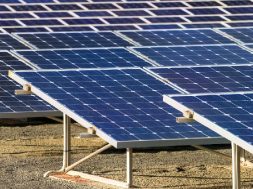
German firm Covestro warms up to micro cold room market in India
German company Covestro, which makes materials that go into the setting up of cold storage facilities, expects to help build 800 solar-powered, micro cold rooms in Telangana over the next two years.
Covestro, formerly part of Bayer Material Sciences, produces polyurethanes, which prevent heat from getting into cold rooms. It also makes proprietary ‘phase changing material’ (PCM) that act like batteries, absorbing heat first (say, from solar energy during daytime) and then providing cooling when required (during nights). Using these materials, the company has developed a ‘ micro cold room’ solution for farmers.
Over the past three years, Covestro catalysed the setting up of 100 cold rooms across the country. It is optimistic about Telangana because of the thrust the State government is giving to cold storage there.
Covestro is in touch with other State governments too, and hopes for more business, said Bagavati Veeralakshmanan, Head – Inclusive Business, Sustainability, Covestro India.
While cold chains have been talked about for long, the advent of technology to make small-sized, solar-powered cold rooms that can be located at farms has triggered a take-off, said Veeralakshmanan.
Up till now, cold chains were typically a big boys’ business. Companies such as Gati Kausar, ColdEx and Kelvin Cold Chain, would build mega-sized cold rooms that can hold hundreds of tonnes of material — mostly in urban centres. Farmers would have to transport their produce to the cold rooms and rent space there. As such only a handful of rich farmers could afford it.
Incidentally, the large-sized cold room business is growing, too.
Danish company Danfoss, which supplies refrigerants and other components that go into the making of cold storage, says its business has been growing 20-25 per cent annually the past five years.
However, Covestro has come up with a solution for micro cold rooms, small enough to be located right at the farms, and can custom-built to store small quantities of produce, say, 5 tonnes.
Covestro doesn’t make the cold rooms, but provides the key material and technology to entrepreneurs, who make them and sell (or lease) them to farmers.
One such enterprise is a Pune-based company called Ecozen, which was started by a group of IIT-Kharaghpur alumni to provide solar-powered irrigation solutions, and has now moved into micro cold rooms.
Powered by solar panels, these micro cold rooms do not depend on a grid power. In the nights, the phase-changing material provides cooling.
Dry rooms
There are two ways of enhancing the shelf life of agricultural produce, noted Veeralakshmanan — storing in a cold room, and dehydrating them.
The latter is particularly suitable for fruits, but can also dry stuff like chillies, spices and fish.
Covestro, which produces polycarbonates that are transparent polymers that can replace glass, has developed a solution using the material to make small dry-rooms.
MCI Agro Industries, based in Krishnagiri, Tamil Nadu, recently set up six dry rooms made by Chennai-based Vinues, using Covestro’s polycarbonate sheets.
MCI typically purchases under- or over-sized fruits from around Krishnagiri — which the farmers would have to sell at throwaway prices — and makes dried-fruit candies.
As a result of this dry room facility, wastage of horticultural products in that area has been practically eliminated, said MCI Agro partner HM Sathyamurthy.















